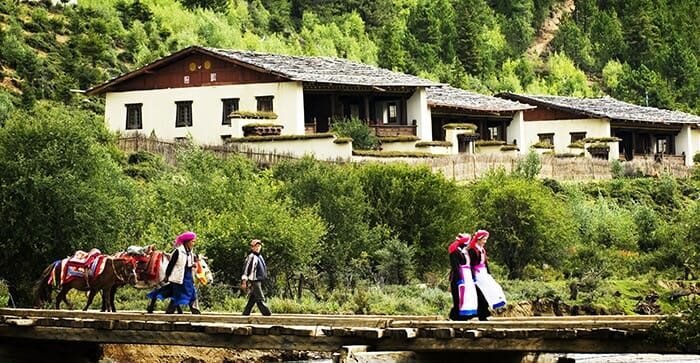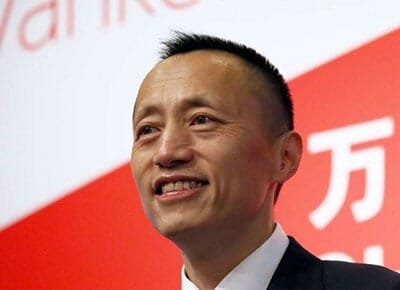
Banyan Tree opened its Banyan Tree Ringha resort 11 years ago
China Vanke has continued to diversify from its core business building middle class homes as the Chinese developer this week entered into a RMB 2 billion ($292 million) agreement with Banyan Tree Holdings to jointly own and manage the Singaporean company’s chain of resorts and hotels on the mainland.
The 50-50 joint venture calls for Banyan Tree to contribute all of its mainland hospitality assets as well as planned projects in the country, while Vanke is contributing cash. Vanke is also securing a 40 percent stake in the Singapore firm’s hotel management company on the mainland, and will receive a five percent stake in the Singapore-based parent company.
For Banyan Tree, which operates 15 resorts on the mainland, the agreement with Vanke is the second major strategic tie-up in less than two months. In early December French hospitality chain AccorHotels agreed to invest S$24 million ($16.9 million) in the Singaporean company and to help expand the resort operator’s brands globally.
Connecting Vanke’s 9 Million Customers to Eco-Resorts
In announcing the new joint effort, China Vanke president Yu Liang said, “…we believe that going forward, there will be many synergies. We have over 9 million homeowners who keep in close touch with us, and they will be a big market for Banyan Tree hotels.

Vanke president Yu Liang sees Banyan Tree offering senior care opportunities
Yu also sees the potential for opening Banyan Tree projects within Vanke developments. “We have many mixed-use urban projects which could take on a Cassia or Dhawa.” Cassia is Banyan Tree’s serviced residence brand, and the company launched Dhawa in 2015 as an urban hotel firm with an emphasis on sustainability.
Banyan Tree, which has made sustainable resorts its trademark, opened its first mainland property, Banyan Tree Ringha, in Yunnan province’s Shangri-La 11 years ago. The company opened its eleventh mainland Banyan Tree in Sichuan’s Jiuzhaigou in October of last year. The company’s website also lists four of its family friendly Angsana-branded properties in China.
The new joint venture is preparing to invite owners of the other Banyan-branded resorts and hotels to inject their properties into Banyan Tree China, the announcement said without specifying terms. Vanke indicated that it may also inject its own existing and future hotels into the JV. Banyan Tree said in October last year that the company was targetting a China portfolio of 40 properties by 2020 and the company indicated that there are currently 20 hotels under development bearing its various brands.
Is Senior Housing in Banyan Tree’s China Future?
Vanke, which has already reacted to China’s slowing housing market by branching out into warehouses and malls, indicated that the Banyan Tree deal might become an avenue for developing senior housing projects in China. Yu noted that, “…we (Vanke) also have many senior-living and active-ageing projects where Banyan Tree’s award-winning wellness experience can provide new joint opportunities.”
In December last year the developer announced its first public-private partnership senior living project in its hometown of Shenzhen. The developer opened its first senior apartment project in Beijing in 2010 and now has 70 senior living projects nationwide, according to press accounts.
Banyan Tree zeroed in on the opportunity for serving China’s graying population via the new joint venture. “China’s demography is also prompting serious interest in senior-living and active-ageing communities as part of a global trend towards wellness,” said Banyan Tree Holdings executive chairman Hon Kwon Ping. “This is an area which both Banyan Tree and Vanke have experience and interest, and together we can do a lot more in China and the rest of the world.”
Leave a Reply